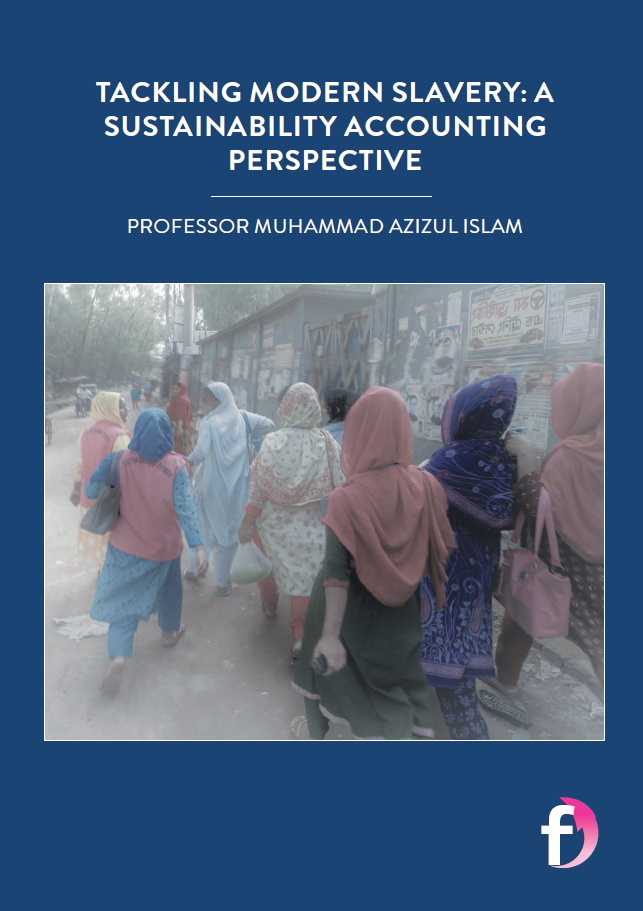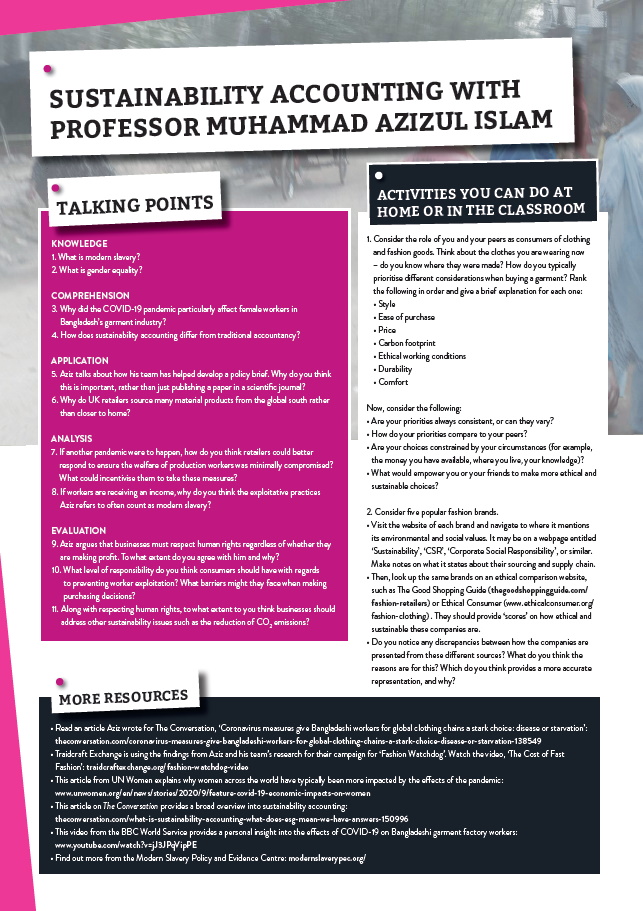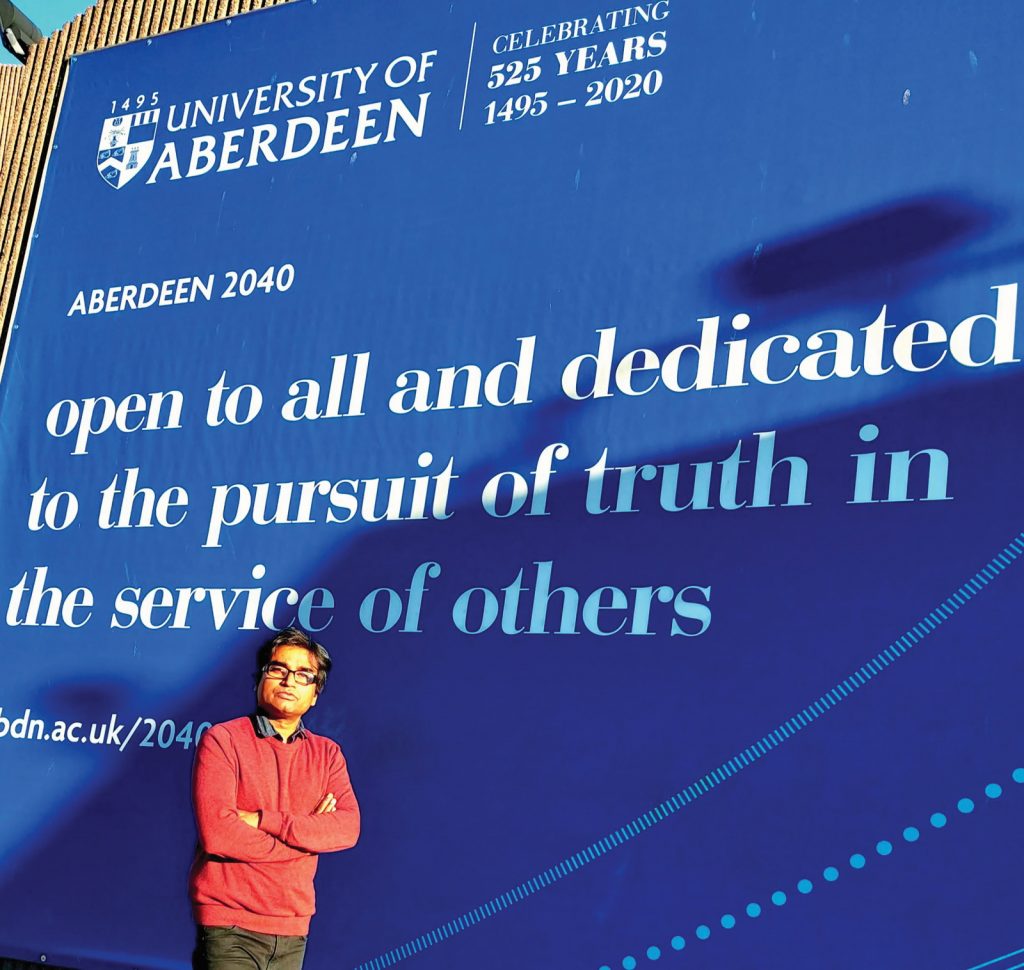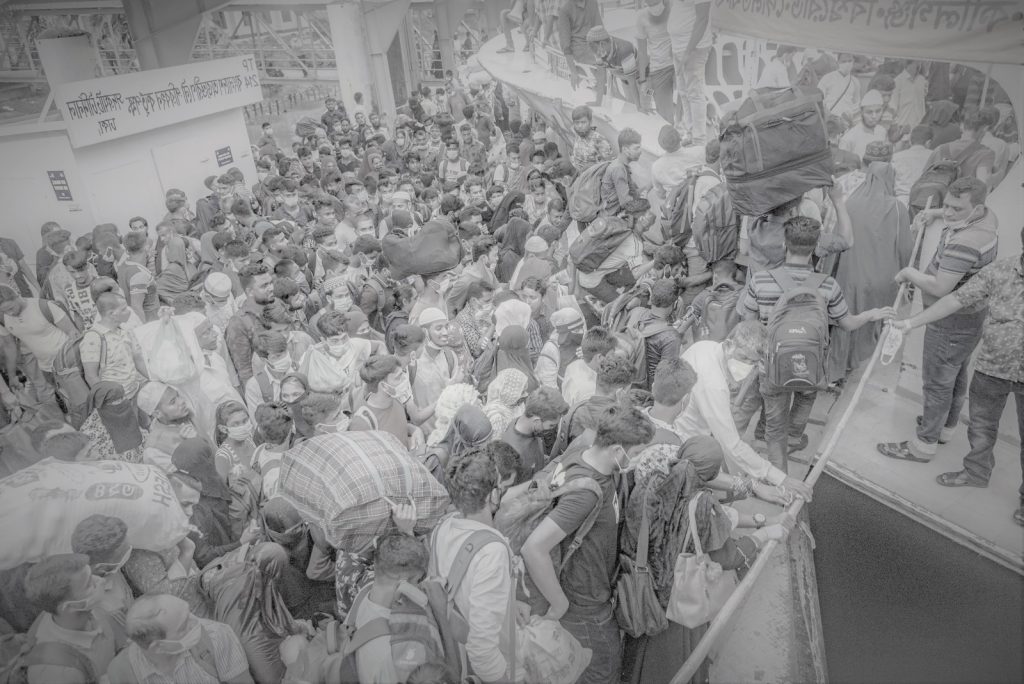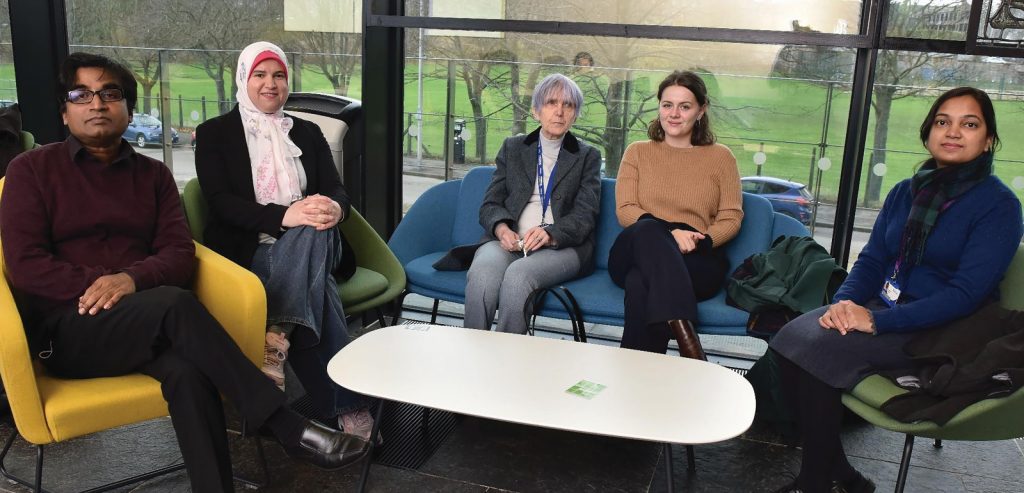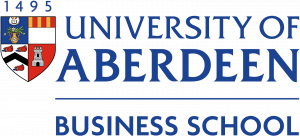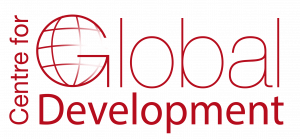Tackling modern slavery: a sustainability accounting perspective
GLOSSARY
ACCOUNTING – recording and disclosures of financial and non-financial transactions of a business
ACCOUNTABILITY – the concept of organisations being held to account/responsible for their practices
CORPORATE SOCIAL RESPONSIBILITY (CSR) – the concept of a business acting responsibly (for example, towards its employees and the environment)
TRANSPARENCY – the sharing of information about a business so that it can be held accountable for how it is run
GDP (GROSS DOMESTIC PRODUCT) – a measure of the size and health of a country’s economy
GLOBAL NORTH – a generalised term for wealthy, industrialised nations
GLOBAL SOUTH – a generalised term for poorer, less-developed nations
MODERN SLAVERY – the severe exploitation of people through abuse of vulnerability for personal and economic gains
NGO – a non-governmental organisation, typically a charity
POLICY – a set of guidelines or rules, used by governments and businesses
READY-MADE GARMENT (RMG) – clothes that are mass-produced and sold on the high street
SUPPLY CHAIN – all the actors involved in the production, distribution and sale of a product
TRACEABILITY – the ability to be able to follow and scrutinise every point along a supply chain
Despite slavery now being universally condemned, there are more enslaved people today than in any other point throughout history. “Modern slavery in the form of forced labour, child labour and human trafficking is pervasive around the world,” says Professor Muhammad Azizul Islam (Aziz) of the University of Aberdeen. “It is especially bad in nations in the global south such as Bangladesh, India, Pakistan, Myanmar and China.”
Aziz’s latest research project focuses on the ready-made garment (RMG) production industry in Bangladesh. This industry supplies clothing and fashion products to multinational companies across the global north – retailers that you are very likely to have heard of, and even bought from. “These RMG companies have moved their production locations to the global south to minimise production costs,” says Aziz. “The reason that labour costs are so much cheaper is because of slavery and exploitation.” Which begs several questions: As buyers, are we benefitting from unethical practices? Are we buying cheaper products at the expense of the workers who make them? How can we hold parties involved accountable? The garment industry is massively important for Bangladesh’s economy, accounting for 80% of its export earnings and about 20% of GDP. It is a big industry, but is it one that we can – and should – influence with our purchasing power?
COVID-19 AND GENDER INEQUALITIES
Alongside Professor Pamela Abbott and Dr Shamima Haque, Aziz has run a project investigating how the COVID-19 pandemic has affected Bangladeshi workers, especially women, and is using their insights to develop policy recommendations. “Lockdowns and decreased demand led to the cancellations of orders by retailers, which in turn led to garment factory closures and job losses, leaving around 2.8 million Bangladeshi workers facing poverty and hunger,” says Aziz. “In factories that remained open, workers were forced to work in unsafe conditions where they were vulnerable to catching the COVID-19 virus and passing it on to their families.”
The project team has found that women were especially impacted by these effects. “Financial pressures on women were exacerbated given many of their husbands could not find work due to a lack of demand in the informal sector, where they were typically employed,” says Aziz. “Our research has found that when the factories closed for the lockdown the contracts of pregnant women were terminated”, adds Pamela. Once lockdown ended, employers focused on hiring young women to replace those made redundant, as they tend to be considered more loyal than male workers and can be pushed to work harder than older women. “Our findings show that COVID-19 has widened the already existing gender inequality, and that there is limited protection available for women workers in the Bangladeshi garments sector,” says Shamima.
RESEARCH AND KEY FINDINGS
The research team investigated this issue through interviews, case studies, a survey, and an analysis of the legal protections in place for women workers in the garment industry. Interviewees were varied, including workers, factory owners, trade union representatives, advocacy NGOs and government officials. The survey focused on social compliance auditors, asking them how much they included gender equality issues within their audits, to get a sense of how Bangladesh is enacting its international commitments to tackle modern slavery and unethical working conditions.
The team found that disruption through lockdowns and buyers demanding lower prices amplified existing vulnerabilities, such as economic insecurity, job insecurity and negligence of employment rights, health and wellbeing, and sexual harassment and violence. Even when legal frameworks were in place to protect workers, they were frequently disregarded by factory owners and management. Buyers tended to be more concerned about health and safety than worker welfare and exploitation, and many social compliance auditors did not examine gender equality.
Reference
https://doi.org/10.33424/FUTURUM212
ACCOUNTING – recording and disclosures of financial and non-financial transactions of a business
ACCOUNTABILITY – the concept of organisations being held to account/responsible for their practices
CORPORATE SOCIAL RESPONSIBILITY (CSR) – the concept of a business acting responsibly (for example, towards its employees and the environment)
TRANSPARENCY – the sharing of information about a business so that it can be held accountable for how it is run
GDP (GROSS DOMESTIC PRODUCT) – a measure of the size and health of a country’s economy
GLOBAL NORTH – a generalised term for wealthy, industrialised nations
GLOBAL SOUTH – a generalised term for poorer, less-developed nations
MODERN SLAVERY – the severe exploitation of people through abuse of vulnerability for personal and economic gains
NGO – a non-governmental organisation, typically a charity
POLICY – a set of guidelines or rules, used by governments and businesses
READY-MADE GARMENT (RMG) – clothes that are mass-produced and sold on the high street
SUPPLY CHAIN – all the actors involved in the production, distribution and sale of a product
TRACEABILITY – the ability to be able to follow and scrutinise every point along a supply chain
Despite slavery now being universally condemned, there are more enslaved people today than in any other point throughout history. “Modern slavery in the form of forced labour, child labour and human trafficking is pervasive around the world,” says Professor Muhammad Azizul Islam (Aziz) of the University of Aberdeen. “It is especially bad in nations in the global south such as Bangladesh, India, Pakistan, Myanmar and China.”
Aziz’s latest research project focuses on the ready-made garment (RMG) production industry in Bangladesh. This industry supplies clothing and fashion products to multinational companies across the global north – retailers that you are very likely to have heard of, and even bought from. “These RMG companies have moved their production locations to the global south to minimise production costs,” says Aziz. “The reason that labour costs are so much cheaper is because of slavery and exploitation.” Which begs several questions: As buyers, are we benefitting from unethical practices? Are we buying cheaper products at the expense of the workers who make them? How can we hold parties involved accountable? The garment industry is massively important for Bangladesh’s economy, accounting for 80% of its export earnings and about 20% of GDP. It is a big industry, but is it one that we can – and should – influence with our purchasing power?
COVID-19 AND GENDER INEQUALITIES
Alongside Professor Pamela Abbott and Dr Shamima Haque, Aziz has run a project investigating how the COVID-19 pandemic has affected Bangladeshi workers, especially women, and is using their insights to develop policy recommendations. “Lockdowns and decreased demand led to the cancellations of orders by retailers, which in turn led to garment factory closures and job losses, leaving around 2.8 million Bangladeshi workers facing poverty and hunger,” says Aziz. “In factories that remained open, workers were forced to work in unsafe conditions where they were vulnerable to catching the COVID-19 virus and passing it on to their families.”
The project team has found that women were especially impacted by these effects. “Financial pressures on women were exacerbated given many of their husbands could not find work due to a lack of demand in the informal sector, where they were typically employed,” says Aziz. “Our research has found that when the factories closed for the lockdown the contracts of pregnant women were terminated”, adds Pamela. Once lockdown ended, employers focused on hiring young women to replace those made redundant, as they tend to be considered more loyal than male workers and can be pushed to work harder than older women. “Our findings show that COVID-19 has widened the already existing gender inequality, and that there is limited protection available for women workers in the Bangladeshi garments sector,” says Shamima.
RESEARCH AND KEY FINDINGS
The research team investigated this issue through interviews, case studies, a survey, and an analysis of the legal protections in place for women workers in the garment industry. Interviewees were varied, including workers, factory owners, trade union representatives, advocacy NGOs and government officials. The survey focused on social compliance auditors, asking them how much they included gender equality issues within their audits, to get a sense of how Bangladesh is enacting its international commitments to tackle modern slavery and unethical working conditions.
The team found that disruption through lockdowns and buyers demanding lower prices amplified existing vulnerabilities, such as economic insecurity, job insecurity and negligence of employment rights, health and wellbeing, and sexual harassment and violence. Even when legal frameworks were in place to protect workers, they were frequently disregarded by factory owners and management. Buyers tended to be more concerned about health and safety than worker welfare and exploitation, and many social compliance auditors did not examine gender equality.
RECOMMENDATIONS AND RESPONSIBILITIES
These unethical conditions are allowed to persist through the actions (or inaction) of every stage of the supply chain – from factory owners, to regulators, to retailers, and even consumers. The research team recommends the Bangladesh Government reviews its protections and rights for workers, and that importing nations such as the UK use political tools to encourage Bangladesh to respect and enforce its international commitments. The team also recommends that retailers emphasise respect for workers’ rights, and consider insisting on independent social audits, ensuring there is no forced or unethical labour practices in their sourcing. Government policy can help enforce this, with stronger legal measures and an independent ‘watchdog’ body. There is also a role for consumers. “Young people, who are the main consumers of fast fashion, have a role in holding retailers accountable,” says Aziz. “We hope our research will help inform consumers, such as students, about the unethical conditions behind some of their clothing choices, and influence their purchasing decisions.”
IMPACTS AND NEXT STEPS
There is already a strong movement encouraging socially responsible consumption, and Aziz believes his team’s research reinforces the importance of this. The research contributes to the campaigns of NGOs who are calling for independent fashion watchdogs in nations such as the UK to hold retailers accountable for enabling exploitation. “We are also partnering with Traidcraft Exchange, UK’s major NGO fighting injustice in global trade, to make a lasting impact on global policy and elimination of slavery in global trade”, says Aziz. The team has developed a policy brief that helps inform policymakers about its key findings and puts forwards its recommendations for positive change. “For the full picture of how the pandemic exacerbated slavery and exploitation, further research is needed to investigate the impact of retailers’ behaviour during that time – including cancellations of orders, increased production pressures, and demand for lower prices from suppliers,” says Pamela. The team also believes that factories may have outsourced work to more informal and less-regulated suppliers during the pandemic. “The limited academic research into these suppliers suggests they may use forced labour,” says Shamima. “There is a need to look into the traceability and transparency of the whole supply chain, to ensure that forced labour is spotted and eliminated,” says Aziz.
RESEARCH PROJECT
Developing post-COVID gender policy measures to end modern slavery and exploitation in the Bangladeshi garment sector
FUNDERS
Arts and Humanities Research Council (UKRI/AHRC), The UK Modern Slavery PEC
NON-ACADEMIC PROJECT PARTNER
Traidcraft Exchange
PROFESSOR MUHAMMAD AZIZUL ISLAM
(Chief Investigator) Chair in Accountancy and Professor in Sustainability Accounting and Transparency; University of Aberdeen Business School, Scotland, UK
FIELD OF RESEARCH: Sustainability Accounting and Corporate Transparency
(Co-investigator) Director, Centre for Global Development; Chair in Education, School of Education, University of Aberdeen, Scotland, UK
FIELD OF RESEARCH: Gender, Feminism, and Development Studies
(Co-investigator) Senior Lecturer of Accounting, University of Aberdeen Business School, Scotland, UK
FIELD OF RESEARCH: Carbon (Climate Change) Accounting and Disclosure, Business and Human Rights, and Gender
The views expressed in this research report are those of the authors and not necessarily of the Court of the University of Aberdeen, Traidcraft Exchange, UKRI/AHRC or the Modern Slavery PEC’. AHRC grant Ref: AH/V009788/1.
Developing post-COVID gender policy measures to end modern slavery and exploitation in the Bangladeshi garment sector
FUNDERS
Arts and Humanities Research Council (UKRI/AHRC), The UK Modern Slavery PEC
NON-ACADEMIC PROJECT PARTNER
Traidcraft Exchange
PROFESSOR MUHAMMAD AZIZUL ISLAM
(Chief Investigator) Chair in Accountancy and Professor in Sustainability Accounting and Transparency; University of Aberdeen Business School, Scotland, UK
FIELD OF RESEARCH: Sustainability Accounting and Corporate Transparency
(Co-investigator) Director, Centre for Global Development; Chair in Education, School of Education, University of Aberdeen, Scotland, UK
FIELD OF RESEARCH: Gender, Feminism, and Development Studies
(Co-investigator) Senior Lecturer of Accounting, University of Aberdeen Business School, Scotland, UK
FIELD OF RESEARCH: Carbon (Climate Change) Accounting and Disclosure, Business and Human Rights, and Gender
The views expressed in this research report are those of the authors and not necessarily of the Court of the University of Aberdeen, Traidcraft Exchange, UKRI/AHRC or the Modern Slavery PEC’. AHRC grant Ref: AH/V009788/1.
ABOUT SUSTAINABILITY ACCOUNTING
“Throughout my research career, I have thought carefully about who within an organisation contributes to slavery and exploitation,” says Aziz. For instance, retail CEOs may look for strategic locations for sourcing products with low-production costs, which may mean human rights are neglected. Similarly, accountants are typically tasked with minimising costs and maximising profits, without much consideration of human rights. “I find these roles, and the way topics such as accountancy are taught in schools and universities, to be flawed as they don’t incorporate the importance of human rights and morality into these transactions,” he says.
Emphasising that profit should be earned responsibly and not at the expense of people, planet and future generations, sustainability accounting creates a new space for the existing accounting profession. “My research helps my students understand alternative and critical narratives on profit maximisation and cost minimisation,” Aziz explains. “During my early career, it was challenging to integrate these ethical ideas into mainstream accounting, but, over time, widespread stakeholder concerns have led to a growing number of business schools’ research realising the importance of incorporating these factors.”
Despite progress, curriculum development remains limited, and Aziz believes that teaching students – future accountants and CEOs – about how to include human rights within their decision-making is key to a brighter and more responsible future.
A career in this field is about facilitating positive change and making a difference. “I love to share what I learn from my research, especially lessons that challenge the status quo,” says Aziz. “I teach my students how accountants are responsible for curbing slavery and emphasise the need to change irresponsible business practices.”
“Sustainability accounting is still in its infancy,” says Aziz. “However, it is a subject with the power to change the mainstream ideology.” He believes that demand for accountants with knowledge of social responsibility (for people and the planet) will increase markedly in the future. This change is already happening, with global leaders and stakeholders showing greater interest in issues such as human rights and climate change.
EXPLORE A CAREER IN SUSTAINABILITY ACCOUNTING
- In addition to open days and career fairs, the University of Aberdeen, where Aziz works, offers campus visits.
- The Centre for Social and Environmental Accounting Research (CSEAR) at St Andrews University has plenty of information on research into sustainability accounting and runs events and site visits.
- Social Value UK is the professional body for social value and impact management, of which sustainability accounting is a key part.
- This article from Accounting Careers provides advice on incorporating sustainability into accounting practices.
- This article, Tackling Modern Slavery: What Role Can Accountants Play?, from the International Federation of Accountants (IFAC) highlights the role of accountants and auditors in tackling modern slavery.
- This article from Journal of Business Ethics provides critical understanding of a modern slavery act (The UK Modern Slavery Act). ‘Modern Slavery Disclosure Regulation and Global Supply Chains: Insights from Stakeholder Narratives on the UK Modern Slavery Act’.
As Aziz highlights, sustainability accounting is an emerging field and is not specifically offered by most universities. Undergraduate courses in traditional accountancy, finance or management may offer modules in sustainability accounting or provide a route to more specialised qualifications such as a master’s degree. Useful subjects to study for these degrees include mathematics, statistics, economics, finance, law and business studies. For a good knowledge of social and ethical responsibilities, subjects such as sociology, politics, law, English, history and geography can be useful.
TOP TIPS
01 Do something that makes a positive difference to society. This will involve obstacles and failures, but stick to your goal and you will succeed.
02 Success lies in motivation, determination, hard work and study.
03 Strong academic qualifications are important for a career in academia.
MEET THE TEAM

PROFESSOR MUHAMMAD AZIZUL ISLAM
I grew up in Dhaka, the capital of Bangladesh. The area was surrounded by garment factories supplying far-away companies, and I used to see hundreds of workers entering and leaving every day. When I studied accounting at Dhaka University during the 1990s, I found my education in profit maximisation contradicted my daily exposure to workers’ livelihoods, which led me to realise that accounting avoids engaging with underprivileged workers, despite their importance in financial gains for the company. I realised the flaws in not only our accounting systems, but entire business school curriculums, when it came to human rights. This inspired me to pursue research that could challenge these mainstream education practices.
I am motivated by my passion for research. Being a successful researcher often involves challenging the existing knowledge base, which brings its own challenges. For example, corporate social responsibility (CSR) is often profit-driven – that is, a business runs CSR activities or maintains human rights in the workplace because it leads to more profit. This implies if you do not profit, you do not need to be socially responsible. I find such thinking flawed because it suggests you do not need to be moral or humane when you are not making profit. Sustainability accounting provides this critical perspective.
Having grown up in an underprivileged community, it has been a rewarding journey to ultimately become a university professor. My mother taught primary school students and often struggled to support our livelihoods on a limited salary, but still taught me the importance of discipline and inspired me to strive for better. Throughout my career, I have strived to make a difference. I was delighted to secure my professorship only eight years after completing my PhD.
I dream of finding a responsible profit mechanism for businesses and accounting bodies. This involves changing mainstream thought about the role of accounting and profit maximisation. I strongly believe that human rights must not be sacrificed for profitability.
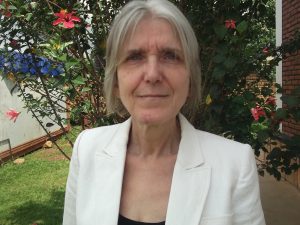
PROFESSOR PAMELA ABBOTT
I am a co-investigator on the project and the expert on gender, health well-being and quality of life and socioeconomic development and transformations.
I have over 20 years’ experience of researching in the Global South, and have also carried out research in Rwanda, the former Soviet Union, East Africa, North Africa and the Middle East.
My main motivation is curiosity. I find my work both challenging and rewarding, and gain new knowledge every day. One challenge is gaining an understanding of the context in which the people who participate in my research live their everyday lives.
Despite some progress towards gender equality in the Global North, little progress has been made in many countries in the Global South. Women remain responsible for most unpaid care work even alongside paid employment, and sexual harassment and violence remain part of the everyday experience for many women. On average, women are paid less than men, even when doing work of equal value that involves the same level of skill and knowledge.
COVID-19 has widened the gap between the ‘haves’ and the ‘have nots’. It has exacerbated existing inequalities, such as race and ethnicity, disability, age, gender, and those between the Global North and Global South. It has resulted in a reduction in people’s quality of life and well-being, with many countries, especially in the Global South, struggling to offer their citizens support during this time of crisis.
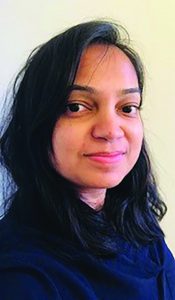
DR SHAMIMA HAQUE
I am a co-investigator of the project. I am an expert in exploring different corporate accountability practices by using qualitative research methods, such as surveys and interviews.
My main research interests are in corporate sustainability accounting and reporting practices. This includes a focus on carbon accounting, human rights and labour rights. I am also interested in research into gender, which stems from my experience as the research lead of the Aberdeen Business School’s Athena SWAN committee, which recognises the career progression and personal development of women in STEM.
I believe in accountability and transparency. This is important to me on a personal level – being accountable to society, my organisation, the people around me and to myself. This motivates my research into organisations’ accountability practices and their responsibilities to wider stakeholder groups and society.
I teach a course on corporate governance and ethics. I aim to teach students that, as a rational decision-maker, they can choose to make their own profit, but as a human being they are accountable to wider society. The next generation of researchers should explore the role of ethical practices within organisations, to shape good governance and sustainability practices and make ethical behaviour a more mainstream part of corporate behaviour.
Do you have a question for Aziz, Pamela or Shamima?
Write it in the comments box below and Aziz, Pamela or Shamima will get back to you. (Remember, researchers are very busy people, so you may have to wait a few days.)

